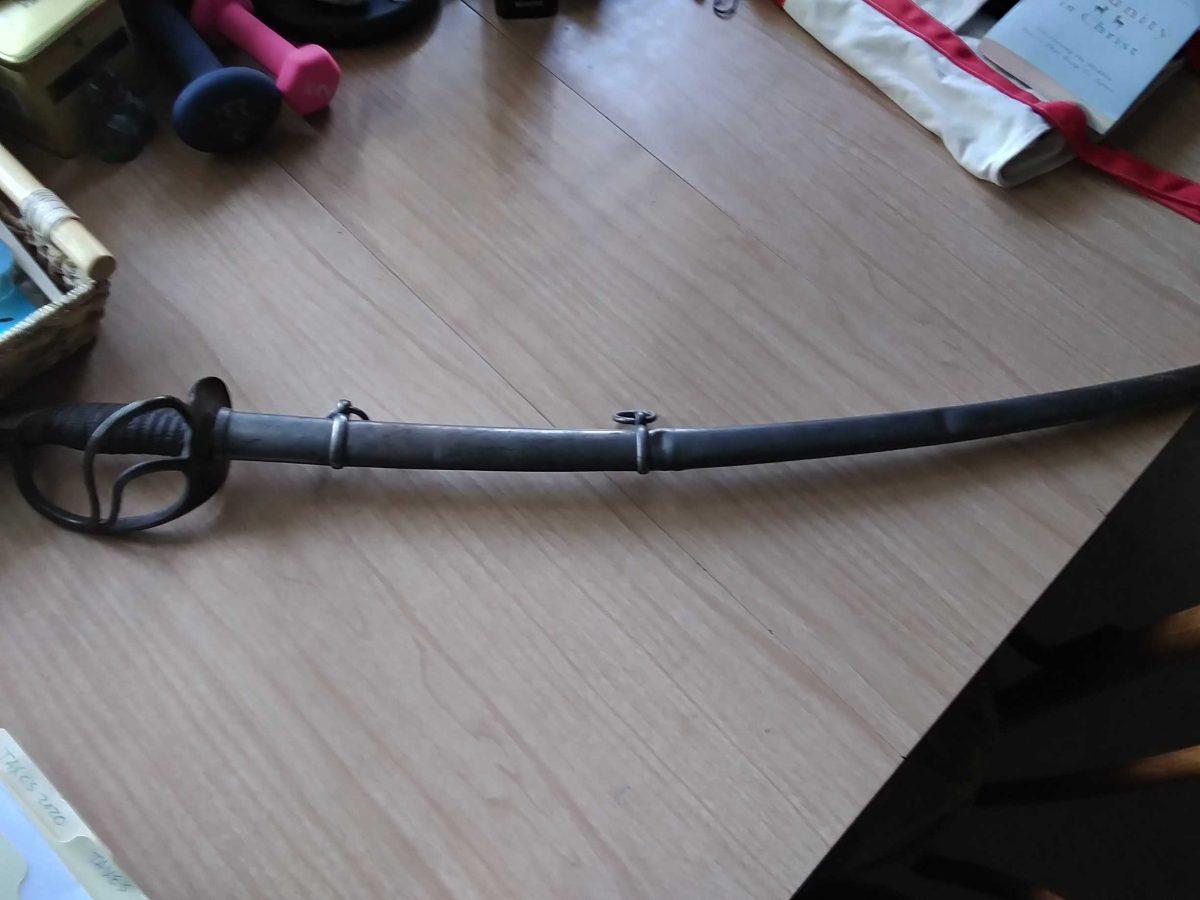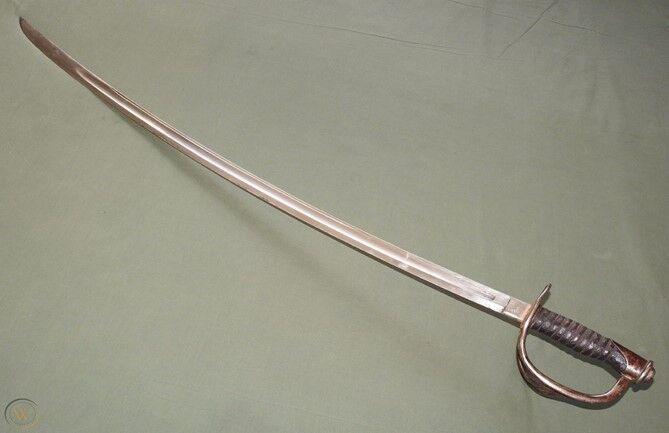From Roman coins, bayonets and, most recently, a World War I cavalry sword, LSU history professors have reported multiple thefts of historical items this semester and last from Himes Hall.
A WWI sword stolen in January belongs to History Department chair Aaron Sheehan-Dean, currently serving a year appointment at University College Dublin, Ireland, as a visiting professor of American history.
The sword is about 3 feet long, gray, has a leather-wrapped handle and “Col. Tower” inscribed on it.
Sheehan-Dean said the sword was a family heirloom, passed down from his great grandfather, a colonel in WWI.
“I remember playing with it as a kid; it’s banged up mostly on account of us playing with it in the basement. My brother and I would swing it at each other, so the value is really sentimental–although the fact that I’m a historian makes it a little more acute,” Sheehan-Dean said.
Christine Kooi is filling in as the interim chair of the History Department while Sheehan-Dean is abroad. She uses the department chair’s office and was the first to notice the sword’s disappearance.
The sword is presumed to have gone missing between the afternoon of Monday, Jan. 24, and the morning of Wednesday, Jan. 26.
“I know they were there last week on Monday because I was on a Zoom meeting and the camera caught over my shoulder and someone mentioned the sword, but then on Wednesday morning at about 10 a.m. I discovered one of them was missing,” Kooi said.
The WWI sword sat beside another historical sword from the Civil War, though that one wasn’t stolen. Kooi took the Civil War sword home for safekeeping.
“To me, the mystery is why was only one sword taken but not both?” Kooi said.
Other items in the office seemed to be untouched, including a brand-new laptop that’s worth more than either sword.
In the 30 years that Kooi has been at LSU, there has never been an apparent need for locking away valuables.
“I won’t feel secure keeping anything of value like that,” Sheehan-Dean said. “The previous chair had something sentimental and historic in there as well, so I just presumed that stuff is generally safe, but that’s not the case.”
The administrative coordinator of the History Department, Darlene Albritton, said that the offices are locked at night.
“These offices definitely are locked, so it has to be someone who has a key to the individual offices,” Albritton said. “Let’s just say the building was accidentally left open, but for sure, my professors’ offices, and especially this main office is always locked.”
Albritton and Kooi believe the thief of Sheehan-Dean’s sword may have had some form of key access to the office. They are still puzzled as to the illogical circumstances of the missing items of all the professors and encouraged them to act cautiously with any items they deem valuable.
“My hope is that if somebody took it and if it was some kind of prank even, that they’ll just return it and that be the end of it. It’s not about the money, it’s a part of my family history,” Sheehan-Dean said.
Other history professors have reported missing historical items. History professor Maribel Dietz’s Roman coins and history professor Victor Stater’s WWI British infantry bayonet were stolen last semester.
Dietz first noticed her coins were missing after returning from a long period of remote work at home. She initially assumed that they had been lost in a messy office, but after a thorough sweep, she concluded that they were stolen.
The coins were made of copper and silver and much like the stolen sword, their value wasn’t measured monetarily, but in their historical significance. She said the cheapest one may have been worth around $20 and the most expensive was maybe $80.
“I have taught at LSU for 23 years. I’ve had those coins with me and I would take them to class. These are classes of 300 people that pass them around and I just tell them whoever has them at the end, just bring them up,” Dietz said. “I never lost a single coin.”
Much like Dietz, Stater can’t exactly pinpoint when his bayonet disappeared from his desk. He believes that it was sometime during the early part of the fall semester. He estimates the value of the bayonet to be around $100-150.
“Part of teaching history is to get the students to have a connection with the primary source material, not just me droning on or their textbook droning on,” Dietz said.
By having physical pieces of the past, students may engage further either by interest or better understanding of the material. Something like these items could make a general education class something that a student genuinely connects to, remembering it for the rest of their life.
“It may help students to better visualize or connect with a period. To actually have something that you can show them that comes from that moment in time. They’re useful teaching tools,” Stater said.
Theft in LSU office spaces aren’t necessarily a new phenomenon, Stater said. What’s unusual is what’s being stolen – items with historical value that aren’t worth much monetarily.
“It’s not that uncommon for things to be stolen out of people’s offices. More commonly, it’s unguarded purses and things like that,” Stater said.
Stater believes this could just be “opportunistic crime” — someone who happens upon the items and decides to take them. He and Dietz are not particularly hopeful they will get their items back.
“It’s a shame, but my fault for leaving it on my desk where somebody could just grab it. It’s also partly my fault because I don’t lock the door every time I walk out of my office. That might’ve made the difference,” Stater said.
Stater said that security cameras around the building would be nice, but he realizes that they might not be the most cost-effective solution.






